This month we report on human rights abuses related to measures taken by the authorities to combat Covid-19 in Venezuela, Ecuador, Colombia, Brazil and Argentina. In Venezuela and Argentina the systematic human rights abuses by the security forces have been exposed during the pandemic. In Colombia, the killing, forced disappearances and threats to social leaders from armed groups have accelerated during lockdown. We cover the plight of indigenous communities to defend their land rights in Ecuador and to survive Covid-19 in Ecuador, Colombia and Brazil. We report an international landmark case concerning children’s rights in Ecuador and important decisions by the Supreme Courts in Colombia and Brazil. There’s Good News from Chile and Brazil and an Urgent Action for Ecuador on behalf of indigenous peoples of the Amazon.
REGIONAL
This article, originally published in El Pais, describes the deadly threats faced for centuries by the Indigenous people of the Amazon and across the Americas by uncontrolled extractive activities, now aggravated by COVID-19.
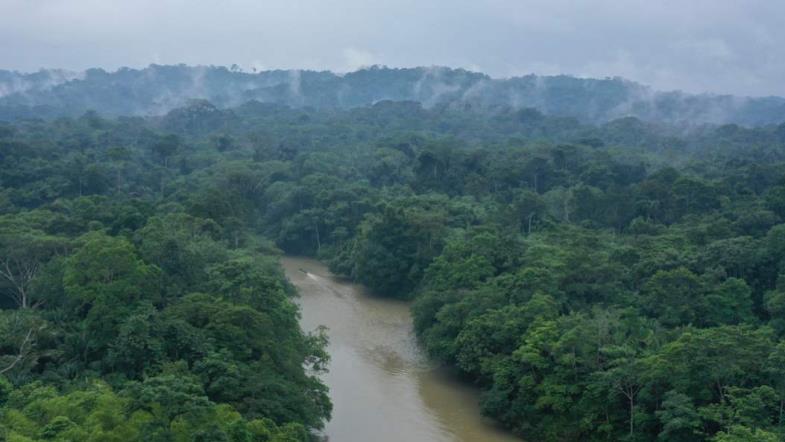
VENEZUELA
The daily number of COVID-19 cases reported in Venezuela has accelerated at the quickest rate yet in recent weeks. According to the organization Medicos Unidos de Venezuela, 71 health workers died from 1 July to 16 August, with 37 of those deaths coming in just the first 16 days of August. Amnesty has accused the authorities of failing to take action to protect the population, particularly doctors, nurses and hospital workers, and jailing those who speak out about their dire labour conditions.
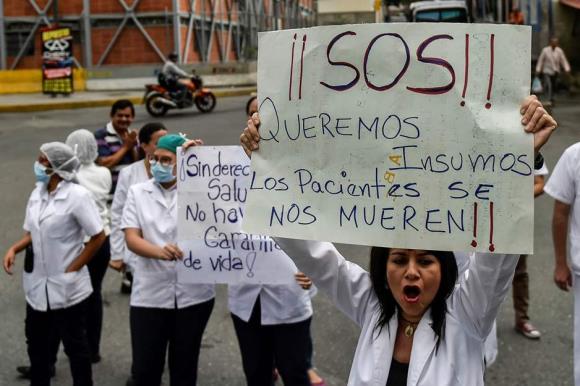
Amnesty has joined 83 other national and international human rights organizations in a call on states at the UN Human Rights Council to renew and strengthen the mandate of the Independent International Fact-Finding Mission on Venezuela. The Fact-Finding Mission was launched with a mandate to investigate human rights violations since 2014, with a view to ensuring accountability for perpetrators and justice for victims. Although the Mission has not been allowed to enter Venezuela, it will present its report to the Council in September, when its current mandate ends.
Human Rights Watch has accused Venezuelan security forces and authorities of using measures to curb the spread of Covid-19 as an excuse to crack down on dissenting voices and intensify their control over the population.
ECUADOR
The Ecuador government has published a protocol to respond to COVID-19 among Indigenous Peoples. However, according to Indigenous and human rights organizations in the Amazon, there was inadequate consultation and the protocol does not reflect their demands. In an Urgent Action, Amnesty is calling on the President to ensure that the Indigenous peoples of the Amazon participate in the decision-making structure of the COVID-19 response and ensure that the response is adequately funded and respects their rights and needs. You can take action until 8 October.
This article and video describe the efforts of Indigenous Ecuadorian women from the Amazon rainforest to defend their homelands, the death threats and attacks that they face as a result, and their calls for greater protection. 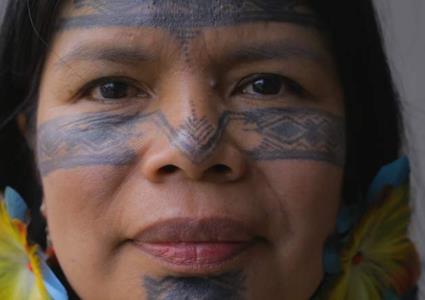
The Inter-American Court of Human Rights has ruled against Ecuador in its first ever case on school-related sexual violence in the Americas. The long-delayed case, which dates from 2001, involves a public school vice principal who began raping a 14-year-old pupil. The abuses continued for over a year, with the knowledge and complicity of school officials, but the school did nothing to protect her and, in December 2002, the girl took her life. The Court has given the government one year to guarantee that children are safe from sexual violence in its schools.
CHILE
Good news! On 18 August, Celestino Córdova Tránsito, the imprisoned spiritual leader of the Mapuche people, ended his hunger strike after reaching an agreement with the government which included several of his requests. Media reporting on the issue mentioned Amnesty’s call for dialogue as one of the relevant elements that served to pressure the government into reaching an agreement.
More good news! On 21 August, the National Prosecutor formally charged a commanding officer with the attacks and injuries suffered by Gustavo Gatica during a protest in Chile last November that led to him becoming blind. The prosecutor used language and arguments similar to those used by Amnesty in its campaign, suggesting that our actions have had an impact. Gustavo’s brother has conveyed the family’s gratitude to Amnesty for their support.
In another case, a police special forces captain has been arrested on assault charges for the blinding of a woman hit by a tear gas canister during the protests. According to the National Prosecutor’s Office, a total of 62 law enforcement officials have been charged for crimes they are alleged to have committed during the protests, which spurred 8,575 criminal complaints.
The UN special rapporteur on human rights to drinking water and sanitation has asked the Chilean government to “clarify” its approach to the intensive cultivation of avocados in the central coastal region of Valparaiso, as well as the Alto Maipo Hydroelectric Project which lies southeast of the capital, Santiago, suggesting that the government could be placing economic development over human rights through controversial agriculture and energy projects.
BOLIVIA
In a new report Healing the pandemic of impunity: 20 human rights recommendations for candidates in the 2020 presidential elections in Bolivia, Amnesty has documented human rights violations committed during the crisis that followed last year’s elections, including the repression of demonstrations and excessive and unnecessary use of force by the National Police and the Armed Forces. At least 35 people died and 833 were injured in the context of the protests. The elections are due to take place on 18 October.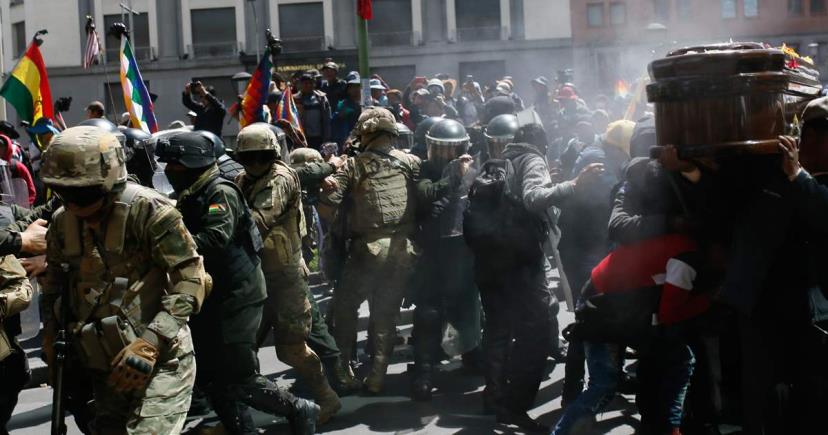
COLOMBIA
The Supreme Court has placed Former President Álvaro Uribe under pre-trial house arrest. Uribe belongs to the same political party as President Iván Duque. The court’s August 4 order was issued in the context of an investigation into whether Uribe bribed former paramilitary fighters to change their testimony about his alleged role in establishing paramilitary groups. According to Human Rights Watch, ‘Colombia’s Supreme Court made a brave decision when it ordered the pretrial house arrest of Álvaro Uribe, Colombia’s most powerful politician. As his supporters attack the court, those who believe in the rule of law and human rights should back the judiciary – not the authoritarian former president.’
WOLA Colombia Peace reports in The State of Peace and Human Rights in Colombia the numerous killings, forced disappearance and death threats to social leaders and others in rural communities by paramilitaries, FARC dissident groups, ELN and other armed groups in the month of July. Just in the department of Cauca, 67 social leaders have been killed since January in an unprecedented wave of attacks across the country. In Chocó Department, the armed conflict between paramilitaries (Gaitenista Self-defence force) and the ELN (National Liberation Army) is reportedly escalating. The report also records the plight that Covid-19 confinement measures have on the Wounaan indigenous community.
The Covid-19 pandemic is out of control in Colombia, which reports over 600,000 cases and nearly 20,000 deaths. This is believed to be an underestimate of the true situation.
Amnesty has signed a letter with 13 other organisations demanding that the authorities respond to the needs of Colombia’s indigenous communities, especially in the Amazon, caused by the Covid-19 pandemic. This follows a lower Court judgement that the government’s actions to counter the pandemic have been ‘useless and inefficient’ in 5 of the country’s departments, including Amazonia.
Amnesty has published The Sikuani and Kubeo Indigenous Peoples are invisible to the Colombian government. A member of these indigenous peoples writes ‘The authorities have not protected us from the attacks and threats we have suffered for years at the hands of paramilitaries and guerrillas. And now they are abandoning us once again and leaving us at the mercy of the COVID-19 pandemic without guaranteeing our rights, such as the rights to health and food. The dangers we face are so great that by sharing our story I risk being threatened or killed and so I cannot publish my name.’
BRAZIL
With nearly 4 million cases and over 120,000 deaths from Covid-19, Brazil records the second largest number of coronavirus cases and deaths of any country in the world.
Good news! Amnesty celebrated the vote in the country’s Congress that eliminated 16 vetoes that greatly limited the scope of an Emergency Plan originally proposed to reduce the dire consequences that COVID-19 is having on Indigenous Peoples.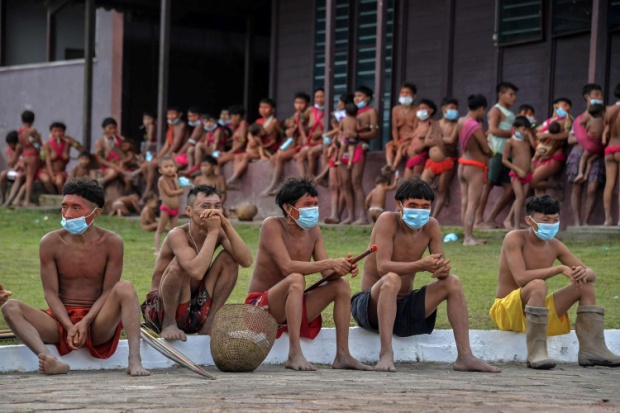
More Good news! Brazil’s Supreme Court ruled that the Bolsonaro administration must take specific precautionary measures to protect Indigenous communities from the spread of COVID-19. The justices ruled that health checkpoints must be placed near isolated Indigenous tribes, and that the government must establish a plan for removing outsiders, including miners, from protected areas. The court explained that the presence of outsiders increases the risk of spreading coronavirus and also harms the environment.
Most of the measures the court ruled on had already been introduced by top officials last month, and were vetoed by President Bolsonaro. Bolsonaro claimed that there were not enough funds to support the proposed plans. Indigenous peoples have been disproportionately affected by the coronavirus since the start of the pandemic. In Brazil, there have been more than 22,000 cases of COVID-19 and more than 630 deaths in Indigenous communities.
Amnesty published an opinion piece (Portuguese) highlighting the positive results so far of the implementation of a federal court decision to suspend any police security operation in the favelas of Rio de Janeiro during the Covid-19 pandemic. Police killings were reduced by up to 75.5% and, according to other organizations, not having police operations did not imply any increase in crime.
ARGENTINA
Despite a lockdown that has varied in intensity and in location in Argentina since March, the government has been unable to halt the growth in new Covid-19 cases and deaths. Argentina reports 430,000 cases and 9,000 deaths. The current lockdown measures have been extended to 20 September.
Amnesty has released a report (in Spanish) on the excess use of force in Argentina in response to Covid-19. It documents more than 30 cases of institutional violence and excessive use of force. These include the killing of Luis Espinoza in Tucumán, the violence unleashed against the Qom en Fontana community in Chaco and the forced disappearance of Facundo Astudillo Castro in the Province of Buenos Aires. They reveal ‘a systematic way of action and control that requires a profound reform of the state’s security forces.’
The report goes on to make 10 recommendations including training security forces in human rights, developing protocols in line with international standards to cover the action of these forces, measures to collect statistics at both the local and national levels and to guarantee an impartial, independent and timely investigation into cases that are denounced.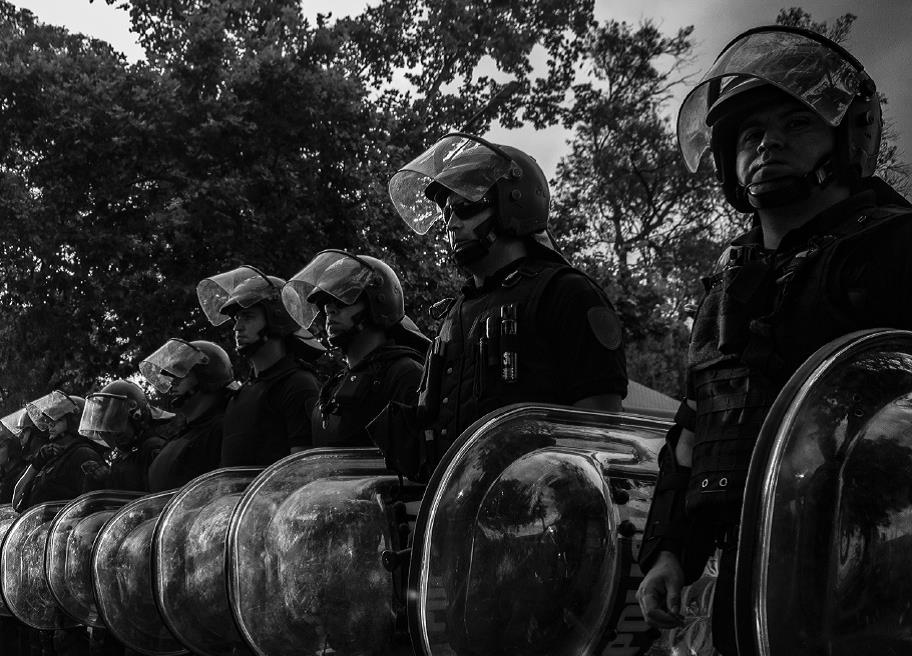
Human Rights Watch (HRW) has published a new report A Case for Legal Abortion in Argentina. ‘Abortion is allowed only when a pregnancy endangers the life or health of a woman, girl, or pregnant person or when it results from rape. In all other circumstances, abortion is banned and punished. The criminal code imposes prison sentences of up to 4 years on women who self-induce or consent to an abortion and up to 15 years on anyone who provides them.’ According to HRW ‘counting all kinds of abortions, it is estimated that between 371,965 and 522,000 abortions are performed each year in Argentina.‘ In 2018 a bill to legalise abortion was narrowly defeated in the Senate.
All the best,
South America Team – Richard Crosfield (Colombia, Argentina, Brazil) and Graham Minter (rest of South America).